Federal election: Chance of clean-energy windfall for Climate 200 boss if independents get up
Simon Holmes a Court could reap a bonanza for his commercial interests if a team of independent candidates funded by his Climate 200 campaign organisation are elected.
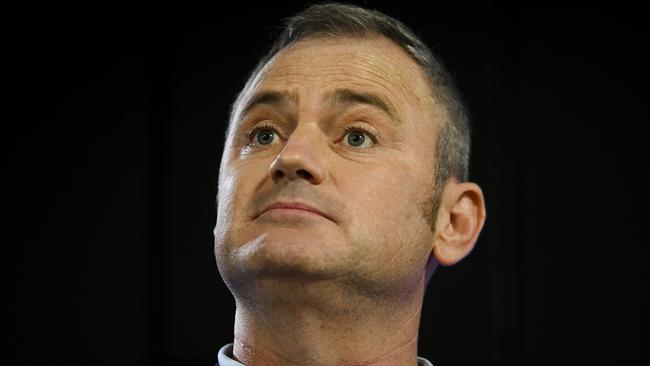
Businessman Simon Holmes a Court could reap a bonanza for his commercial interests if a team of independent candidates funded by his Climate 200 campaign organisation is elected next month and succeeds in pressuring a Coalition or Labor government to speed up Australia’s cuts to carbon emissions.
Mr Holmes a Court, the son of Australia’s first billionaire, has significant financial stakes in companies devoted to investing in decarbonisation and renewable energy technology.
At the same time, his Climate 200 group is donating $10m to independents committed to much tougher emissions targets than those supported by the major parties.
An investigation by The Australian shows the business entrepreneur has a big portfolio of family and other businesses focused on making money out of a potential boom in clean-energy technology.
The most significant – and intriguing – of Mr Holmes a Court’s business interests is a new company he set up in late January this year called Decarb Ventures.
The majority shareholders of Decarb Ventures with 91 per cent are Mr Holmes a Court and his wife, Katrina, while the remaining 9 per cent is owned by business associate Mitchell Hopwood through a company called Minithan.
With these three as its only directors, Mr Holmes a Court says Decarb is currently pursuing “global” investment in clean-energy technology. But Decarb is an Australian-registered company well poised for “huge” local investment opportunities the businessman says are not available under Scott Morrison.
The intriguing side to the creation of Decarb Ventures is the way it has uncovered how Mr Holmes a Court’s involvement with Climate 200 and Mr Hopwood are linked.
Mr Hopwood is a self-described “alternative financier” from Sydney’s Hunters Hill who heads the Australian arm of EquitiesFirst, a company that provides “progressive capital to shareholders who have a long-term view and conviction in the assets they hold”.
He set up a company called Climate Outcomes Foundation (COF) in April 2019. That was just two days after Climate 200 was registered as a company and a month before the 2019 election.
The purpose of Mr Hopwood’s COF remains unclear. Its only known activity seems to have been to channel funds to Climate 200 that came from undisclosed sources. Mr Hopwood initiated steps to close down COF on November 16 last year, and the company was formally wound up on January 19 this year. This was less than a fortnight before Decarb Ventures was registered to invest in decarbonisation with Mr Holmes a Court and Mr Hopwood as directors.
Before its deregistration, Mr Hopwood’s COF channelled at least $304,000 in donations to Climate 200. The original source of these donations spent by Climate 200 supporting independents at the 2019 election remains unknown.
Overall, Climate 200 spent $500,000 supporting 12 “value-aligned” independent candidates in 2019, including Helen Haines, Rebekha Sharkie, Kerryn Phelps, Oliver Yates and ex-Liberal MP Julia Banks. Only Ms Haines and Ms Sharkie were elected.
Asked by The Australian to identify the source of the $304,000 transferred to Climate 200, Mr Holmes a Court said COF provided donations in 2019 and again last year, but he declined to name their original source.
He dismissed the suggestion there could be an unknown conflict of interest for Climate 200-backed candidates at next month’s election, saying “the funds were fully expended prior to making any donations to any candidates in the 2022 federal election”.
His response leaves open that independents in 2019 might not have known the original source of donations.
The Australian Electoral Commission’s donor returns from the 2019 election indicate that COF money provided the bulk of Climate 200’s seed funding – $195,000 out of $270,000.
The other smaller Climate 200 donors listed were Mr Holmes a Court ($25,000) and Atlassian software billionaire Mike Cannon-Brookes ($50,000). For this election, Mr Holmes a Court says Climate 200 is backing 20 “underdog” independents with 10,000 donations totalling $10m. He claims to have donated $200,000 of his own funds.
The business entrepreneur said in a National Press Club speech two months ago that the Morrison government’s plan to reduce emissions was “a joke”.
He confirmed Climate 200’s strategy for the 2022 election was based on winning seats for at least three climate independents in traditionally Liberal-held seats – in addition to those held by MPs Zali Steggall and Ms Haines.
Climate 200 candidates, if elected, would act as a coalition and seek to hold the balance of power in parliament. Under this scenario, their numbers could be used to exert influence on a minority government – most likely Labor – for faster, more radical action on climate change.
Mr Holmes a Court’s Climate 200 campaign hopes in Sydney are focused on Allegra Spender unseating Liberal Dave Sharma in Malcolm Turnbull’s former seat of Wentworth, Kylea Tink ousting Trent Zimmerman in North Sydney and Sophie Scamps ousting Jason Falinski in Mackellar.
In Melbourne, Monique Ryan is running against Treasurer Josh Frydenberg in Kooyong and Zoe Daniel against Tim Wilson in Goldstein.
Another key figure behind Climate 200 is Damien Hodgkinson. Mr Holmes a Court told The Australian he “started” the organisation himself shortly before the 2019 election.
This is a fact but, according to ASIC documents, it was formally started by Mr Hodgkinson, an insolvency practitioner and former financial controller for Ms Steggall and other climate independent candidates.
Mr Hodgkinson was initially Climate 200’s sole director and Climate 200 continues to operate out of his main Sydney-based business, Olvera Advisers. Until July last year, Mr Hodgkinson’s Olvera Advisers was also the registered office and principal place of business for Populares, a company run by former Labor and GetUp! operatives that does paid campaign work for Climate 200 independent candidates and others.
Despite his role as Climate 200’s leader, Mr Holmes a Court was not a director until September last year.
Mr Holmes a Court dismisses any suggestion of a potential conflict of interest for him if climate independents with Climate 200 funding succeed in forcing their agenda on the next government.
He says most of his investments are currently offshore, mainly in Europe, which is far advanced in renewable and clean-energy technology compared with Australia.
But he also appears keen to be at the forefront of expanded investment in this technology if coal can be phased out quickly – with government help.
Mr Holmes a Court told The Australian the nation stood at the precipice of a massive clean-energy and critical minerals mining boom – in cobalt, lithium, nickel and silicon – which was a “once-in-a-century opportunity”.
In his press club address, he said “climate action means huge new industries” and “this transformation definitely is a race”.
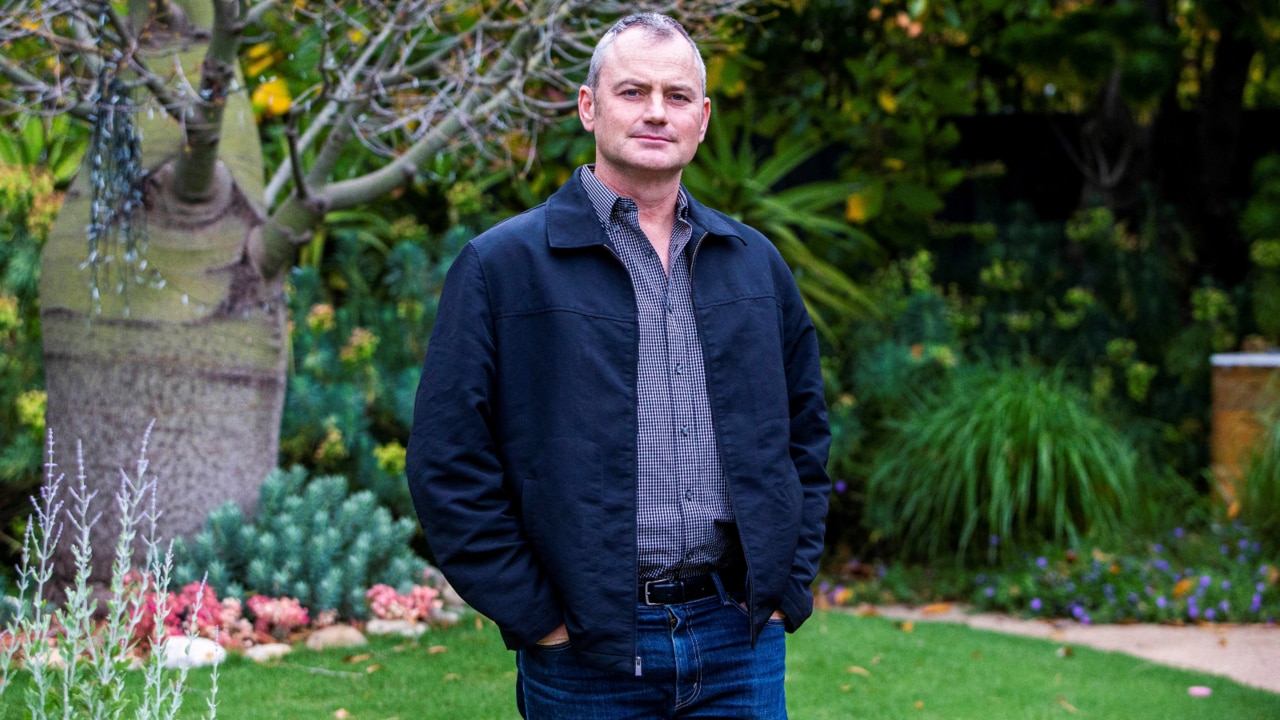
Besides Decarb Ventures, Mr Holmes a Court has shareholdings in a number of companies that profit from investment in renewables and clean energy.
These include 5B Holdings, in which he has a reported stake along with Mr Turnbull, and Future Superannuation Group, in which he has a minor shareholding.
5B Holdings, registered in 2015, produces portable solar panel arrays for mining projects and farms that are off-grid. Beyond Zero Emissions think tank chairman and 5B shareholder Eytan Lenko told The Australian Financial Review in November the company could roll out solar farms on a “huge” scale.
But Mr Lenko added it needed government policy to enforce “the orderly shutdown of coal-fired power plants” and to “hasten the uptake of renewable energy” before the benefits of solar technology could be “fully realised” and “get investors a better return”.
Future Super was launched in 2014 by former GetUp! national director Simon Sheikh as an “ethical super fund” with support from Mr Holmes a Court. It is promoted to investors as “Australia’s first fossil fuel-free superannuation company”.
Although the Holmes a Court shareholding in Future Super remains small, his prominent role in the clean-energy movement appears to have “spooked” some in the mining industry who fear divestment by super funds could undermine funding of future coal and gas projects.
Mr Holmes a Court has six other private companies that appear to be family-owned, or owned with others, and have unknown business interests.
He is also a director of a charity called The Australian Environmental Grantmakers Network, set up to identify environmental funding opportunities.
While Mr Holmes a Court appears committed to clean-energy investments, he also seems interested, ultimately, in a good profit return. He is also partial to taxpayer funding to give clean-energy projects a kick along, if necessary. And he has demonstrated a willingness to drop out, in one notable case, when the going gets rough.
Mr Holmes a Court was the founding chairman of a company co-op with 1100 investors called Hepburn Wind in 2011, which started a wind farm with “the help of state and federal subsidies”.
The project, not far from Mr Holmes a Court’s 40h farm at Daylesford, in country Victoria, was originally promoted as a 21-turbine operation but started with just two turbines after objections from locals.
At the time of its launch, Mr Holmes a Court said Hepburn Wind was projected to generate 12,200 megawatts of power a year, or enough for 2000 homes. Last year’s output was 6228 megawatts and sales have fallen.
The company’s projected average dividends to shareholders were 13.9c a year. For the first eight years, there were no dividends. Investors received 2.7c last year.
Net profits (last year $354,546) have been modest. A $1m grant from the Victorian government last year allegedly stopped Hepburn Wind, now renamed Hepburn Energy, from sliding into insolvency.
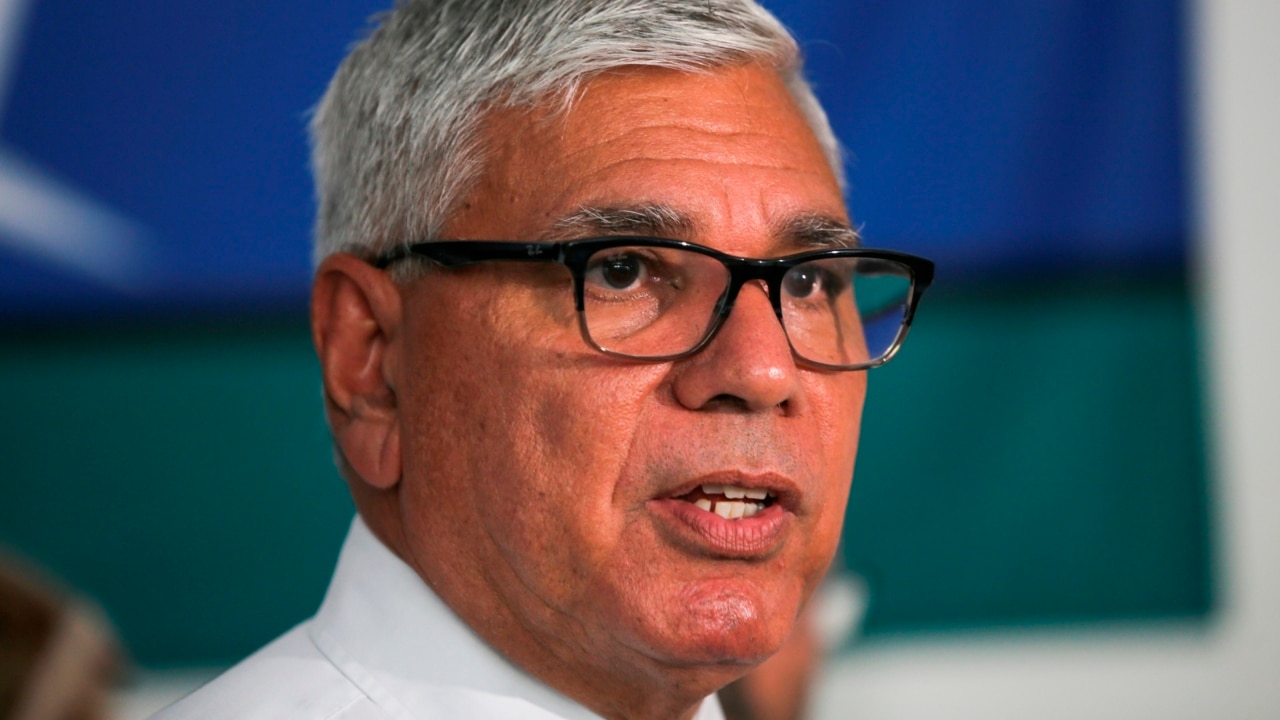
During a “Superpower 2022” energy update he delivered in Melbourne on February 23, the week after his Press Club address, Mr Holmes a Court declared “one of the things I’m most proud of is the Hepburn Wind project”.
But he has not been part of the company’s direction for a while. Responding to a vitriolic critic on Twitter in August 2019, he said he had stepped down from the board in 2015 and noted, “it was voluntary, ie, totally unpaid”. In that financial year, Hepburn recorded a $166,568 loss.
Hepburn Energy’s wind farm lives on – or limps on – without Mr Holmes a Court, although taxpayer funds could come to the rescue if Labor is elected next month.
The opposition’s spokesman for climate change and energy, Chris Bowen, promised during a wind farm visit on April 12 that an Albanese government would commit $500,000 to building a community battery at the Hepburn wind farm as part of Labor’s $200m promise to build them across the country.
Hepburn Energy tweeted this was “huge news” that would be a “game-changer for our co-op & progressing our communities zero-net emission target by 2030”.
One respondent, dubbed AussieRock tweeted: “Let’s make it a blueprint for the rest of the country.” Another, Sandra, said: “Not with my tax money.”
As Mr Holmes a Court showed during his “Superpower 2022” energy update, he is a passionate climate crusader. In responses to questions from The Australian, he said his best protection against any perception or risk of being seen to have a conflict of interest between his commercial interests and campaign funding of climate independents was “truthful, balanced and fair reporting, though I acknowledge I have no control over that”.
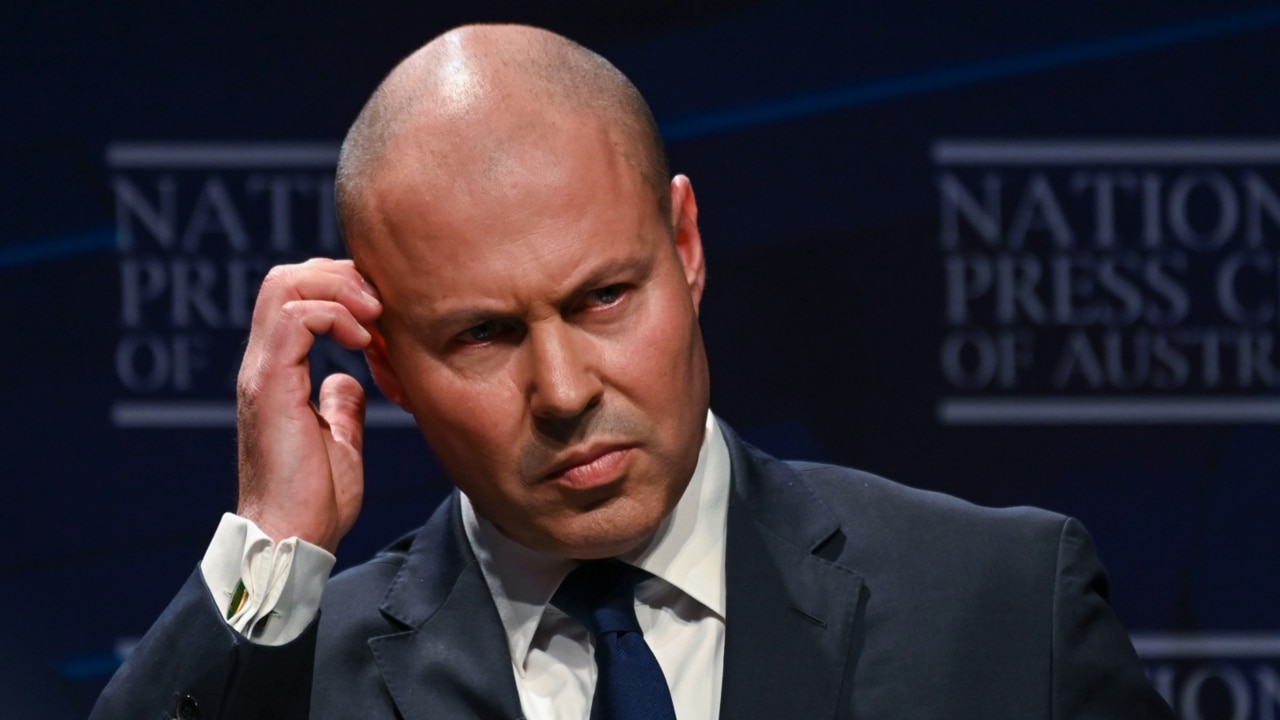
Asked if climate independents elected on May 21 with campaign funding from Climate 200 would have a potential conflict of interest if they pushed for measures that benefited him or his companies financially, Mr Holmes a Court said his clean-technology investments were mostly foreign, with Australian holdings representing less than 2 per cent of his assets.
“I wish a greater proportion of my renewable and clean-tech holdings were in Australia, but frankly, a decade of government policy hostile to the sector has resulted in a dearth of attractive domestic opportunities,” he told The Australian.
“Australia stands at the precipice of a massive clean-energy and critical minerals mining boom – we’re poised to be a clean energy superpower.”
Mr Holmes a Court said he would not have started Climate 200 if he put his financial position ahead of the national interest.
Climate 200 says its campaign spend is “one-tenth as much at this election as each of the Liberal Party, the Australian Labor Party and Clive Palmer’s UAP”.
Mr Holmes a Court dismissed any suggestion there would be consequences for elected Climate 200 independents if they deviated from his organisation’s three core principles: tougher climate change action than the major parties, a legislated national anti-corruption commission and gender equality for women.
Replying on his behalf, Mr Holmes a Court’s media team said independents would be “accountable only to voters” and what they did would be “entirely” up to them: “Climate 200 only supports candidates with aligned values. We have no say in any of their policy positions nor decisions.”
Mr Holmes a Court argues that if elected independents reneged on promises, they would quickly lose community support. He also insists Climate 200 is not a party, does not pick candidates and does not receive “huge donations from vested interests” as the major parties do, and “much of it from undisclosed sources”.
He said in February: “There’s no hierarchy, there’s no leader. There’s no head office, there is no co-ordinated policy platform.”
For independents chosen by Climate 200 to receive its campaign donations and public endorsement, these are presumably reassuring words from the group’s leader as he envisions Australia cashing in on “the biggest economic and business opportunity of this century”.


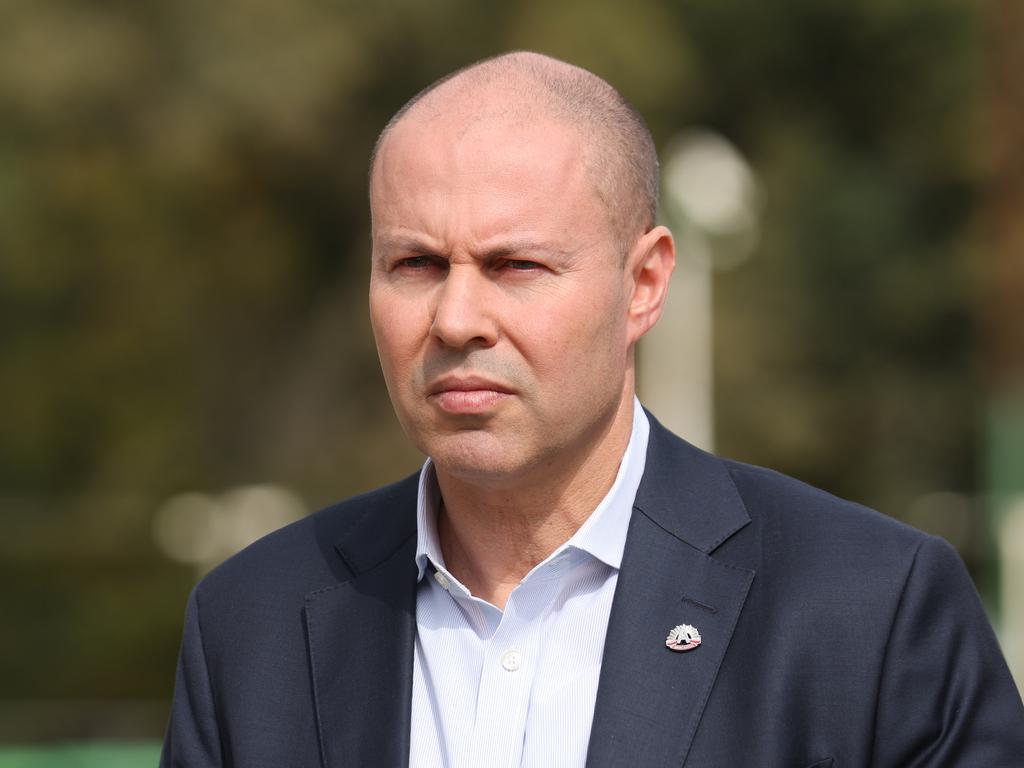
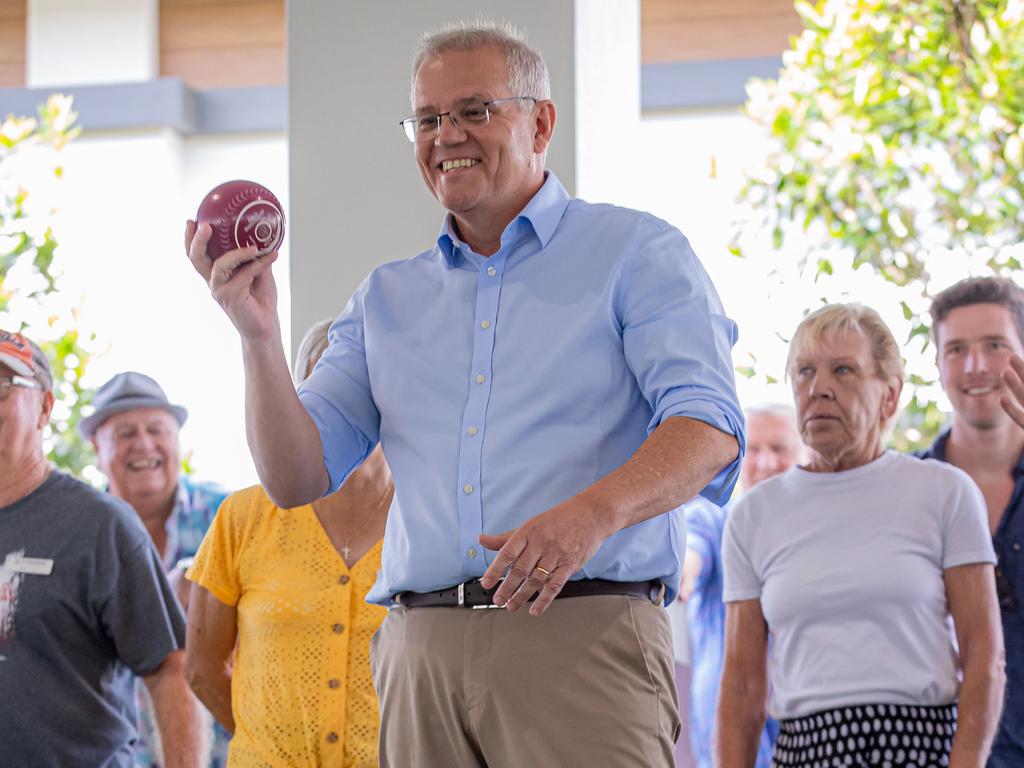


To join the conversation, please log in. Don't have an account? Register
Join the conversation, you are commenting as Logout